
- Average Rating:
- Not yet rated
- Topic Areas:
- Workshops | Anxiety | Depression | Happiness | Love | Relationships | Brief Therapy
- Categories:
- Brief Therapy Conference | Brief Therapy Conference 2002
- Faculty:
- Pat Love, EdD
- Duration:
- 1:40:50
- Format:
- Audio Only
- Original Program Date:
- Dec 15, 2002
- Short Description:
- To love and be loved. Sounds simple - yet for many it is one of life's most difficult challenges. Come and explore three major causes of unhappiness in relationships and gain a deeper understanding of how they are related.
- Price:
- $15.00 - Base Price
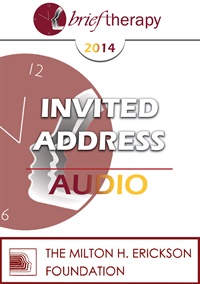
- Average Rating:
- Not yet rated
- Topic Areas:
- Happiness | Invited Addresses | Mindfulness | Brief Therapy | Buddhism
- Categories:
- Brief Therapy Conference | Brief Therapy Conference 2014
- Faculty:
- Ronald Siegel, PsyD
- Duration:
- 1:00:54
- Format:
- Audio Only
- Original Program Date:
- Dec 14, 2014
- Short Description:
- Everyone wants to be happy. While clinicians and researchers traditionally focused on helping troubled people feel less distressed—moving from -5 to 0 on the happiness scale—more recently they’ve branched out to investigate what actually leads to enhanced well-being. Some research findings point in surprising new directions, while others echo advice heard from wise elders and religious teachers across cultures and centuries.
- Price:
- $15.00 - Base Price
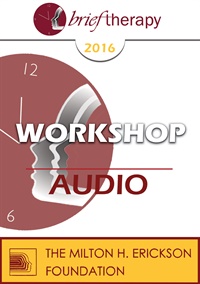
- Average Rating:
- Not yet rated
- Topic Areas:
- Happiness | Workshops | Brief Therapy | Neuroscience | Therapist Development
- Categories:
- Brief Therapy Conference | Brief Therapy Conference 2016
- Faculty:
- Dan Short, PhD
- Duration:
- 2:46:42
- Format:
- Audio Only
- Original Program Date:
- Dec 11, 2016
- Short Description:
- Learn the essential mindsets, strategies and dialogue needed to help clients become independent and happy. In this model, each and every problem is viewed as an opportunity to discover new abilities and expanded choice. In addition to solving the presenting problem, clients are empowered for a lifetime of skillful problem solving.
- Price:
- $15.00 - Base Price
- Average Rating:
- Not yet rated
- Topic Areas:
- State of the Art Address | Psychotherapy | Positive Psychology | Depression | Happiness | Psychology
- Categories:
- Evolution of Psychotherapy | Evolution of Psychotherapy 2005
- Faculty:
- Martin Seligman, PhD
- Course Levels:
- Master Degree or Higher in Health-Related Field
- Duration:
- 56:23
- Format:
- Audio and Video
- Original Program Date:
- Dec 10, 2005
- Short Description:
- Happiness consists of The Pleasant Life (Positive Emotions), the Engaged Life, and the Meaningful Life. Interventions which build these three lives fight depression. Dr. Seligman will present empirical documentation of this for individual, group, and web-based interventions.
- Price:
-
Sale is $29.00
price reduced from Base Price - $59.00
- Average Rating:
- Not yet rated
- Topic Areas:
- Workshops | Positive Psychology | Psychology | Depression | Happiness | Psychotherapy
- Categories:
- Evolution of Psychotherapy | Evolution of Psychotherapy 2005
- Faculty:
- Martin Seligman, PhD
- Course Levels:
- Master Degree or Higher in Health-Related Field
- Duration:
- 2:44:51
- Format:
- Audio and Video
- Original Program Date:
- Dec 10, 2005
- Short Description:
- Happiness can be usefully dissolved into the Pleasant Life (Positive Emotions), the Engaged Life, and the Meaningful Life. The mission of Positive Psychology is to understand and build these three lives. Dr. Seligman will describe interventions that raise happiness, so defined, and will detail their effects on depression.
- Price:
-
Sale is $29.00
price reduced from Base Price - $59.00
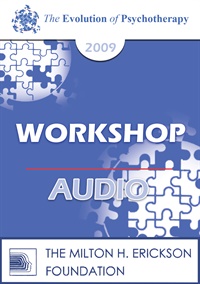
- Average Rating:
- Not yet rated
- Topic Areas:
- Psychology | Workshops | Positive Psychology | Depression | Happiness | Psychotherapy
- Categories:
- Evolution of Psychotherapy | Evolution of Psychotherapy 2009
- Faculty:
- Martin Seligman, PhD
- Duration:
- 2 Hours 6 Minutes
- Format:
- Audio Only
- Original Program Date:
- Dec 12, 2009
- Short Description:
- Happiness can be usefully dissolved into the Pleasant Life (Positive Emotions), the Engaged Life, and the Meaningful Life.The mission of Positive Psychology is to understand and build these three lives. Dr. Seligman will describe interventions that raise happiness, so defined, and will detail their effects on depression.
- Price:
- $15.00 - Base Price
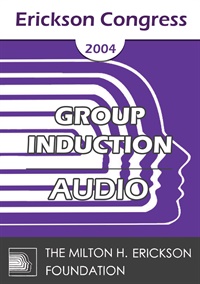
- Average Rating:
- Not yet rated
- Topic Areas:
- Group Induction | Storytelling | Happiness | Hypnosis
- Categories:
- Erickson Congress | Erickson Congress 2004
- Faculty:
- George Burns, MA, PsS
- Duration:
- 1:00:44
- Format:
- Audio Only
- Original Program Date:
- Dec 03, 2004
- Short Description:
- IC04 Group Induction 04 - Stories for Health and Happiness - George Burns, B.A. (Hons.)
- Price:
- $15.00 - Base Price
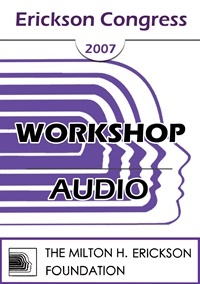
- Average Rating:
- Not yet rated
- Topic Areas:
- Workshops | Happiness | Anxiety | Obsessive Compulsive Disorder (OCD) | Strategic Therapy
- Categories:
- Erickson Congress | Erickson Congress 2007
- Faculty:
- Reid Wilson, PhD
- Duration:
- 1:44:14
- Format:
- Audio Only
- Original Program Date:
- Dec 07, 2007
- Short Description:
- An insightful look at managing anxiety by shifting mindset and embracing uncertainty. This session introduces the formula “uncertainty minus worry equals happiness” and offers practical tools like action frames, self-statements, and role-play to build resilience and reduce distress. Key concepts include flow, self-efficacy, and turning challenges into opportunities for growth through repetition, positive imagery, and concrete problem-solving strategies.
- Price:
- $15.00 - Base Price
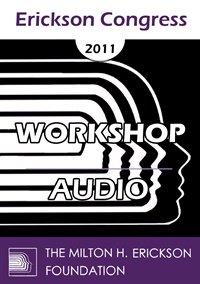
- Average Rating:
- Not yet rated
- Topic Areas:
- Psychology | Happiness | Workshops | Positive Psychology | Ericksonian Hypnosis and Therapy Techniques | Goals of the Therapist
- Categories:
- Erickson Congress | Erickson Congress 2011
- Faculty:
- George Burns, MA, PsS
- Duration:
- 1 hour
- Format:
- Audio Only
- Original Program Date:
- Dec 07, 2011
- Short Description:
- Erickson made happiness a legitimate goal of therapy and developed many interventions to enhance it. Positive psychology has provided the evidence to support this. In this workshop you will learn from a leading practitioner about the paradigm shift of positive psychology and develop a number of strategies to apply it in your own work.
- Price:
- $20.00 - Base Price



